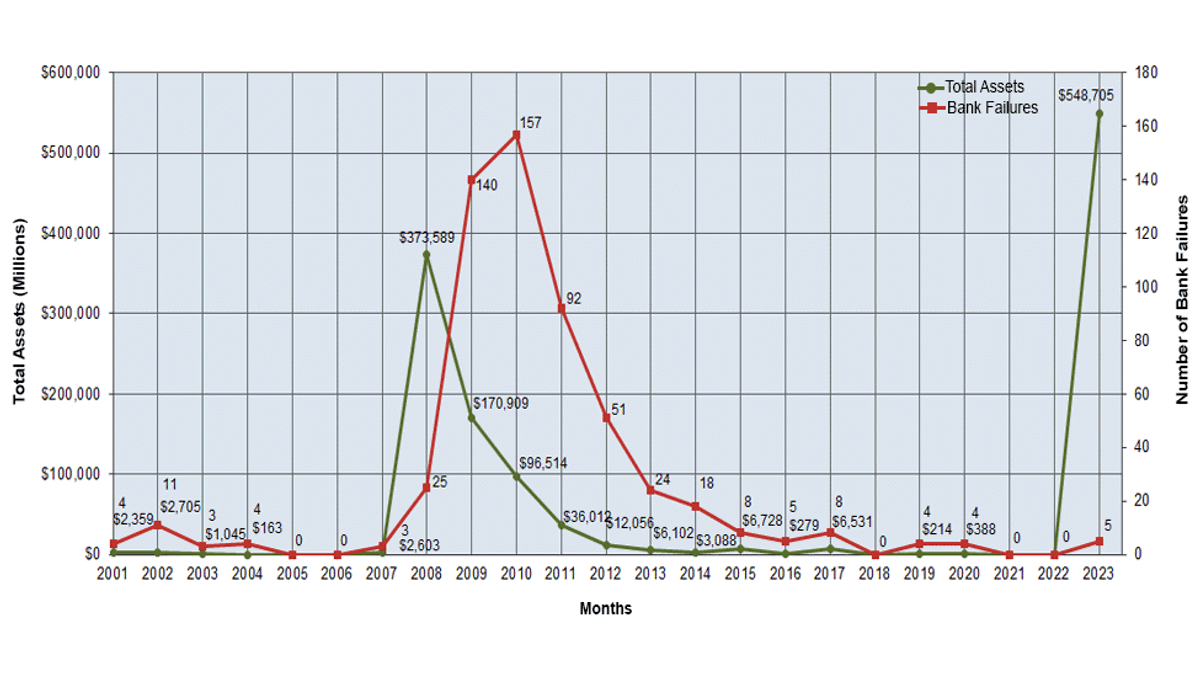
January 17, 2024
How the Bitcoin ETF Mirrors Traditional Banking Problems Despite Advancing the Crypto Movement
Navigating the Unstable Terrain of Traditional Banking: A 2023 Perspective
The year 2023 should have been a wakeup call in the world of finance, particularly highlighting the risks associated with traditional banking. The collapse of five major banks, including the Silicon Valley Bank, led to an astonishing loss of $549 billion. This figure not only dwarfs the cumulative $373 billion gap caused by over 100 bank failures during the 2008 financial crisis but also underscores a fundamental problem in the banking system: the lack of control you have over your own money. When you deposit funds in a bank, that money effectively becomes the bank’s property. In extreme cases, you could be denied access to your funds or, worse, lose them entirely.
The Rise of Cryptocurrencies: A Solution with Misused Potential
Cryptocurrencies like Bitcoin emerged as a beacon of hope, promising a level of control and security that traditional banking couldn’t offer. However, the way most people use cryptocurrencies today isn’t maximizing their potential. A prime example is the Bitcoin Spot ETF. While it might seem like an innovative financial product, it essentially replicates the same dynamic as entrusting your money to a bank. You’re investing in cryptocurrencies for speculation, but you don’t actually own them. These assets are in the possession of the ETF provider, and if they fail, your protection is limited and not guaranteed.
Owning Cryptocurrency: The Path to True Financial Independence
To leverage cryptocurrencies effectively, it’s crucial to own and control your assets directly. This means having the ability to send and receive funds at any time, without relying on a third party. The process is straightforward:
- Purchase Cryptocurrencies: Use reputable exchanges like Coinbase or Kraken to buy cryptocurrencies. This is the only step where you’ll need to trust a third party.
- Invest in a Hardware Wallet: Choose a reliable hardware wallet like Trezor, Ledger, or Ngrave. This device will store your cryptocurrencies offline, providing an added layer of security.
- Transfer to Your Wallet: Move your cryptocurrencies from the exchange to your hardware wallet. This step transfers ownership directly to you.
Once you complete these steps, you truly own your currency.
Maximizing Your Investment: The Role of Nodes and Staking
To fully utilize your cryptocurrencies, consider running a node. This not only gives you full access to send and receive funds but can also be profitable if you choose a node that supports staking.
AVADO provides a seamless solution for this. It’s the ideal platform for staking Ethereum, starting with solutions like Stader and 4 ETH, or Rocket Pool with 8 or 16 ETH. However, the ultimate goal for many is to become a full validator by staking 32 ETH. Each of these staking options offers the potential for passive income while ensuring you maintain full control and complete privacy.
Conclusion: Embracing Cryptocurrencies Correctly
The key takeaway from the banking instability of 2023 and the rise of cryptocurrencies is clear: it’s essential to maintain control over your financial assets. By owning your cryptocurrencies and utilizing platforms like AVADO for staking, you can avoid the mistakes of traditional banking and enjoy the benefits of financial independence and security.
Embrace cryptocurrencies the right way and secure your financial future by steering clear of third-party dependencies. The path to true financial autonomy lies in direct ownership and smart investment strategies, epitomized by the world of cryptocurrencies and innovative platforms like AVADO.